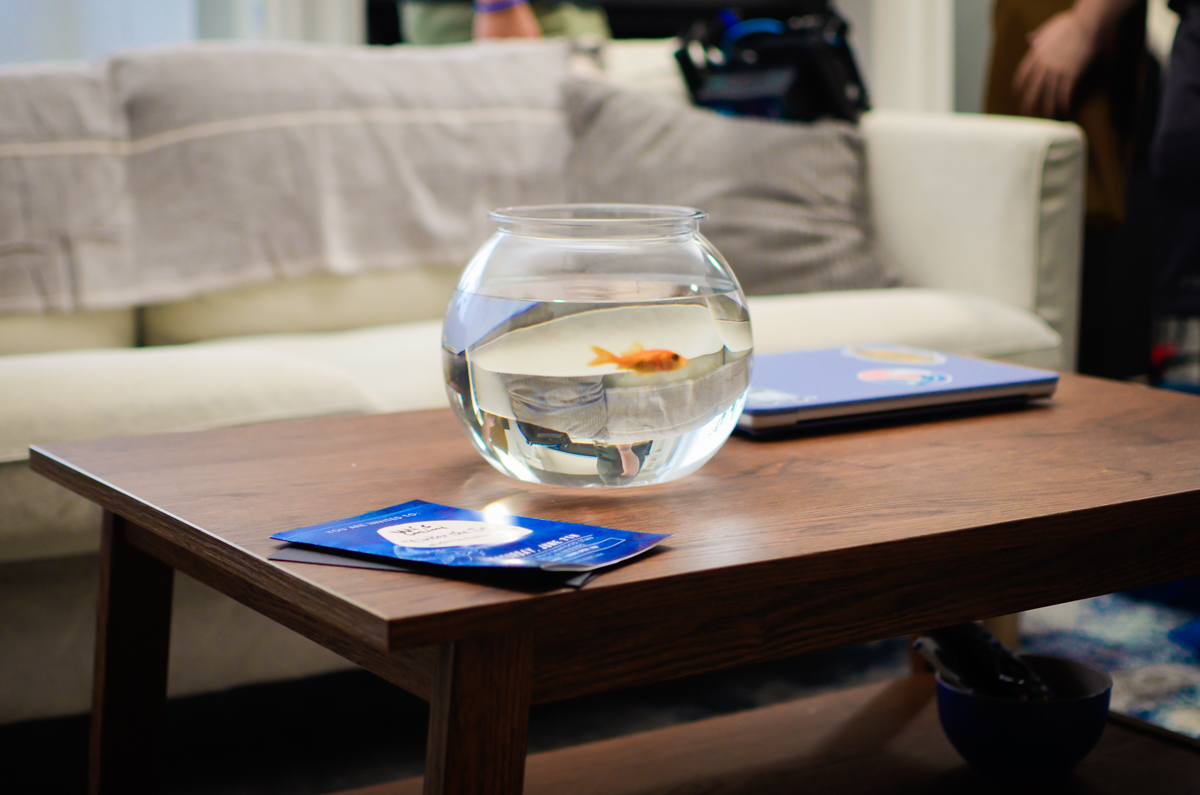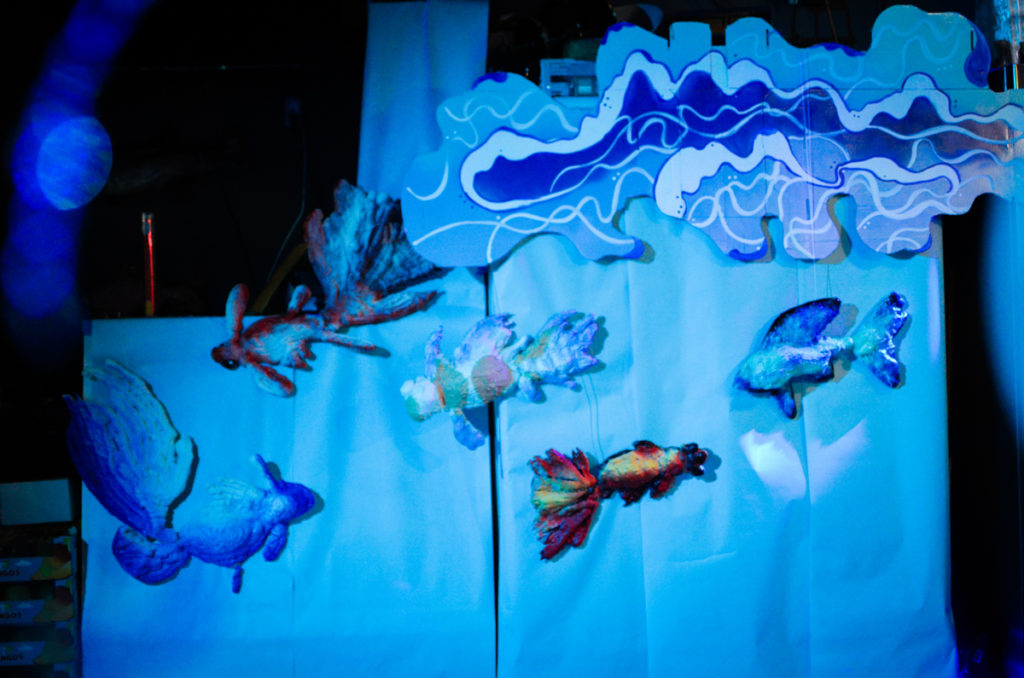UCLA alumnus explores fish out of water family dynamics in short film

A goldfish in fishbowl sits on top of a brown coffee table. Written and directed by alumnus Jeremy Hsing, “Fish” explores a mother-son relationship after the mother dies and is reincarnated into a fish. (Courtesy of Samantha Umbay)

By Victoria Munck
Dec. 2, 2022 4:51 p.m.
This post was updated Jan. 10 at 8:39 p.m.
Jeremy Hsing’s latest short film is encouraging viewers to think outside the tank.
The alumnus’ project “Fish” follows a Chinese American man named Tiger who faces conflicting emotions after failing to attend the funeral of his traditional, estranged mother. When she is reincarnated as a goldfish, he is able to reevaluate their complicated relationship and the cultural standards of the past. Written alongside alumnus and actor Patrick Zhang, Hsing said the surrealist dramedy’s story tackles a variety of thought-provoking questions, such as how one can maintain individuality while facing familial opposition.
“We use the unorthodox setting to explore grief and healing,” Hsing said. “Basically, ‘How do you live from a deficit? How do you reconcile a relationship when there are so many intergenerational differences and division?’ and ‘How do you navigate that to stay true to who you are?’”

[Related: Graduate student premieres personal short film ‘The Blessing]
Hsing said it was important that the story personified a nonhuman object to capture the relationship between Tiger and his mother, and a fish was ultimately the best choice because it was not as costly or challenging to direct. For instance, to get the fish to move in a desired direction, Hsing captured its attention by using light and the presence of food, he said. Production designer Courtney Chapman, a graduate student in animation at UCLA, added that the team accomplished more complicated shots by repainting plastic and rubber fish to replicate the living one.
Though he mainly considered the practical benefits of casting the animal, Hsing said the reincarnation of Tiger’s mother as a pet goldfish helped contribute to the short film’s symbolism. He said he was fascinated by the concept of a fish breathing in a water-filled bowl while on land and applied this idea to his characters’ complex relationship.
“It’s almost like the glass is this separation in between our main character and what becomes Fish/Mom,” Hsing said. “They’re so close to potential reconciliation, and there’s just this glass that’s separating them from being able to connect.”
These emotional aspects are also conveyed through the visual aesthetic of the short, Hsing said. As the film progresses, he said the colors increase in vibrance to showcase Tiger’s character development from internal conflict to self-discovery. Hsing said he used muted blues to depict the character’s initial isolation and then concluded with a purple dreamscape, drawing inspiration from the series “Euphoria.”
Considering the film’s color palette as well, Chapman said she sought to highlight features such as the textures of props and sets while designing the visual schematics for the project. For instance, by incorporating warm, draping cloths in scenes in which Tiger is with his mother, she helped reveal their tension to viewers, she said.
“The heavy drapery is there to invoke … (a) restrictive-like feeling, even in familiarity,” Chapman said. “That heavy draping suffocates someone, and the warm colors bring out family, so it’s like these conflicting, confusing emotions.”
Hsing also attributes the authenticity of the project’s story to the contributions of its diverse cast and crew, he said. The “Fish” team members were of varying racial identities and sexual orientations, which he said hopefully highlights society’s underrepresented communities. By prioritizing intersectionality both on and off camera, Hsing said amalgamating their different lived experiences helped the short’s story resonate with others. Fourth-year psychology student Victoria Wang, a producer for the short, said the voices of the people on set were taken into account throughout the production process, including when developing the character of Fish/Mom.
“When we were talking with the actors, we were definitely talking to them about how they felt about this Mom character and the stereotypes around Asian parents in America,” Wang said. “We didn’t want to have … a stereotypical Asian mom, because I think that’s already been perpetuated a lot in entertainment.”

[Related: ‘Fishbowl’ film gives intersectional glimpse of Asian America, LGBTQ+ stories]
The film is currently in postproduction and the team is working on the coloring, sound, music and visual effects, Hsing said. Their goal, he said, is to complete editing by the end of the year in order to submit the film to the Los Angeles Asian Pacific Film Festival. When “Fish” reaches larger audiences, he said, he hopes viewers can witness the developing relationship between Tiger and his mother to understand that love is a reciprocal and consensual entity.
“This sounds cliché, but you have to be capable of loving yourself first, and knowing yourself and knowing what you want,” Hsing said. “From that core is where love for another steps (in), and that’s really explored in the mother-son dynamic.”


